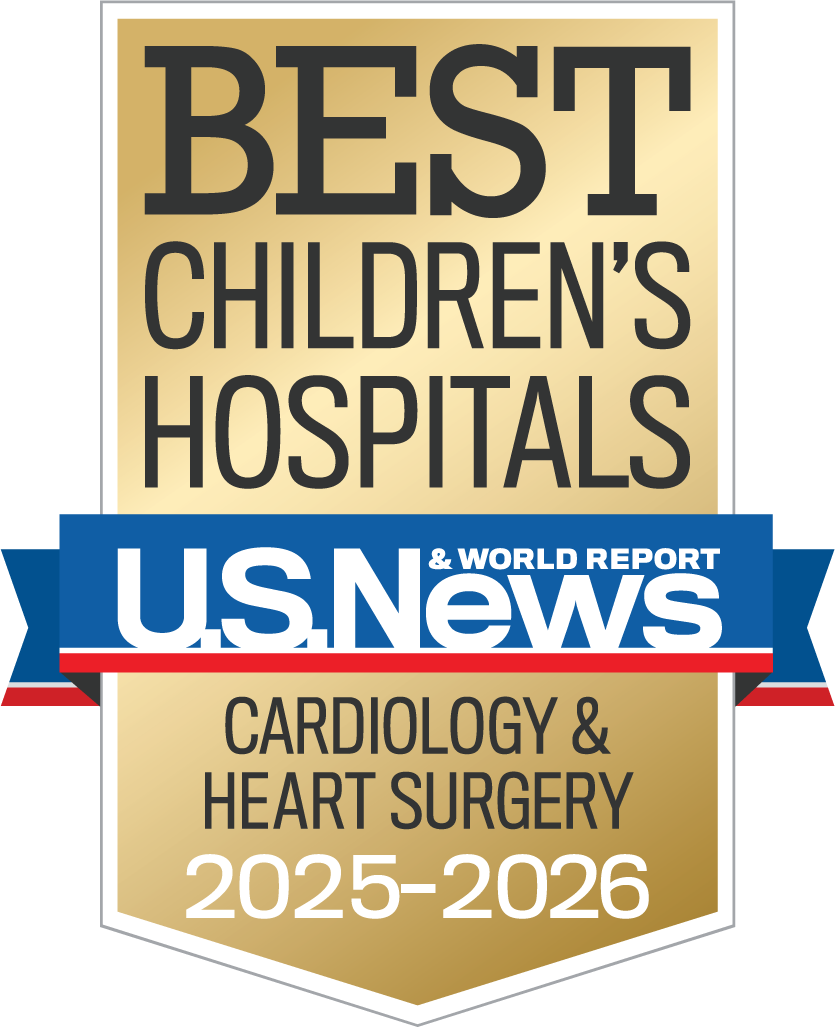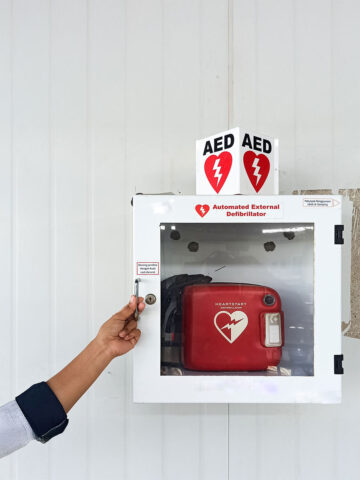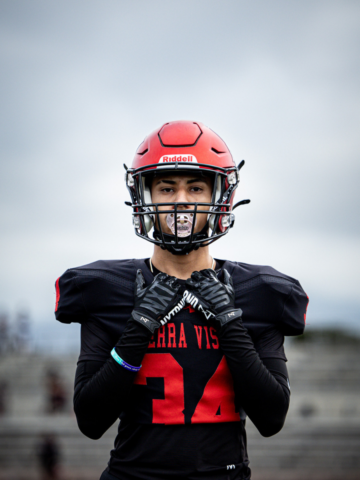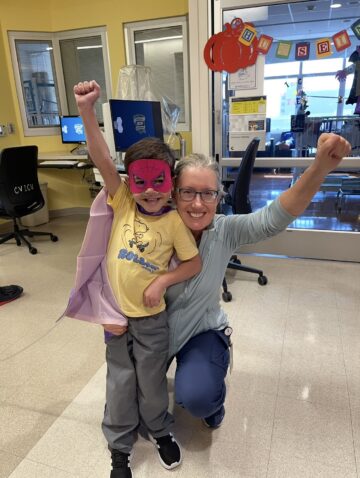Stories of healthy kids suddenly suffering from sudden cardiac arrest are scary. Understandably, parents and caregivers may have questions like: What is sudden cardiac arrest? How can I prevent it from happening to my child? What can I do to help?
Here, Dr. Anjan Batra, pediatric cardiologist at CHOC’s Heart Institute, answers parents’ frequently asked questions about sudden cardiac arrest and kids.
What is sudden cardiac arrest?
Sudden cardiac arrest is a condition in which the heart suddenly stops beating. If this happens, the blood pumped from the heart stops flowing to the brain and other vital organs. Sudden cardiac arrest is usually caused by an irregular heartbeat, or a condition called arrhythmia. If not treated in minutes, sudden cardiac arrest can lead to death.
Sudden cardiac arrest vs. heart attack: What’s the difference?
Sudden cardiac arrest is different from a heart attack. A heart attack is caused by when a part of the heart muscle is blocked, and the heart doesn’t usually stop beating.
How often does sudden cardiac arrest occur?
In the United States, 356,000 people experience sudden cardiac arrest outside of the hospital per year. Unfortunately, 70 to 90% of those people die before reaching the hospital.
About 1,000 to 9,500 youths (estimates vary widely) suffer sudden cardiac arrest annually in the U.S.; about 2,000 young people under age 25 die each year of sudden cardiac arrest.
What can cause sudden cardiac death in young people?
Although rare in young people, there are several causes of sudden cardiac deaths (deaths caused by sudden cardiac arrest), says Dr. Batra:
- Hypertrophic cardiomyopathy (HCM) is a hereditary disease in which the heart muscle becomes abnormally thick, making it harder for the heart to pump blood. While usually not fatal in most people, this condition is the leading cause of sudden cardiac death in young athletes in the United States. HCM often is previously undetected.
- Long QT syndrome is another inherited heart rhythm disorder that can cause fast, chaotic heartbeats. The rapid heartbeats may lead to fainting and can be life-threatening.
- Supraventricular tachycardia (SVT) is common and worrisome. In these cases, a person suddenly feels their heart racing or beating very fast. However, it is a condition that is very easily treatable with a non-surgical, outpatient procedure called ablation.
“At CHOC, we have a close to 100 percent cure rate for SVT,” says Dr. Batra. “Families should seek care from someone who specializes in arrhythmias.”
Many of these conditions can be treated and managed, he adds.
“The message I would send to parents is to not be scared, but to be proactive,” says Dr. Batra. “There are often things we can do about it.”

Featured article
Radiation-free electrophysiology procedure cures patients of chronic irregular heartbeats
Why does sudden cardiac arrest affect athletes?
Sudden cardiac arrest is rare in children and teens. However, young athletes are 2.5 times more likely to experience sudden cardiac arrest.
In Orange County, there are about five sudden cardiac deaths among athletes per year. About 2,000 youths suffer sudden cardiac arrest annually in the United States.
There is a greater chance for sudden cardiac arrest episodes during exercise or sports-related events because young athletes are pushing every part of their bodies and hearts, and their adrenaline is pumping, says Dr. Batra. These factors can cause a child with an underlying heart condition to experience sudden cardiac arrest.
“Young athletes that suffer sudden cardiac arrest usually have an inherited condition that tends to run in families. Often it is not previously diagnosed,” says Dr. Batra. “But, it’s important to remember that sudden cardiac arrest doesn’t only occur during exercise. It can happen anytime.”
Can sudden cardiac arrest be prevented in kids?
If your child complains of chest pain or palpitations or if they pass out, especially during exercise, call your doctor. Young athletes with a family history of cardiac problems also should be screened for possible heart problems, says Dr. Batra.
For other preventative measures, every child should get an annual physical exam by their pediatrician; young athletes should receive an annual heart screening before their season starts.
If I see someone experience sudden cardiac arrest, what can I do to help?
For someone to survive sudden cardiac arrest, they must receive immediate intervention with CPR or an automated external defibrillator (AED).
If someone you are with shows signs of a sudden cardiac arrest like chest pain; discomfort in one or both arms, the back, neck or jaw; or unexplained shortness of breath; Dr. Batra suggests the following:
- Call 911 or ask someone else to call.
- Start CPR (cardiopulmonary resuscitation) immediately if the person is unconscious or not breathing. CPR will keep the blood circulating to the brain and other organs.
- Ask someone to look for an AED. An AED is a portable device that sends an electric shock through the chest to the heart to restore its normal rhythm. AEDs are often kept in public places like schools, gyms and sports facilities, and anyone can use one. The AED will give you easy-to-follow instructions.
How deaths from sudden cardiac arrest be prevented in kids?
When someone experiences cardiac arrest, “every second matters. It’s the difference between life and death,” says Dr. Batra.
Quick action from CPR and AEDs are essential for survival from sudden cardiac arrest. Dr. Batra suggests the following:
- Parents and caregivers should receive basic CPR training. In Orange County, CHOC offers free community education classes for CPR and more. Nationally, organizations like the American Heart Association or the American Red Cross may offer classes near you.
- Don’t forget to bring your kids to a CPR class! Middle school- and high school-aged kids can learn and give CPR in emergency situations. CHOC Sports Medicine’s Life-Threatening Events Associated with Pediatric Sports (LEAPS) program encourages students throughout Orange County to learn CPR.
- The LEAPS program also advocates for the installation of AEDs near gyms, fields and other sports facilities, as well as heart condition education and preventative electrocardiogram (EKG) screenings.
“Students can help prevent sudden cardiac deaths today and for generations to come,” says Dr. Batra.
It’s important to remember that sudden cardiac arrest is not common for most children and teens. But, awareness and preparedness can save precious lives if sudden cardiac arrest does occur.
Get more expert health advice delivered to your inbox monthly by subscribing to the KidsHealth newsletter here.

Learn more about CHOC’s Heart Institute
CHOC and UCLA Health together have been ranked among the top children’s hospitals in the nation for Cardiology & Heart Surgery by U.S. News & World Report.





